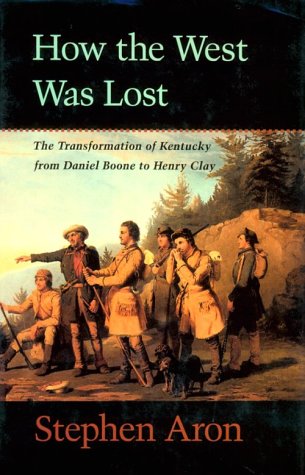Daniel Boone was 18th-century America's backwoodsman. He spent much of his life in or near Indian country, and the proximity rubbed off; he lived in a borderland, a crossroads where Indian and European cultures collided - yet, also suprisingly coincided. This mixed world did not last, thanks in part to Henry Clay, the next generation Kentuckian who by the early 19th century had emerged as the new republic's foremost spokesman for commercial and industrial development. This volume tracks the overlapping conquest, colonization and consolidation of the trans-Appalachian frontier. It focuses on the common ground between Indians and backcountry settlers that was not found, the frontier customs that were not perpetuated, the lands that were not distributed equally, the slaves who were not emancipated, the agrarian democracy that was not achieved, the millenium that did not arrive. Seeking to explain why these possibilities were not realized, the author shows what did happen in Kentucky's passage from Daniel Boone's world to Henry Clay's. He explores who got what and how.
In tune with recent work in social history, ethnohistory and environmental history, this volume provides a perspective on a seminal chapter in the history of the American frontier.
- ISBN10 080185296X
- ISBN13 9780801852961
- Publish Date 8 July 1996
- Publish Status Out of Stock
- Out of Print 22 June 2002
- Publish Country US
- Imprint Johns Hopkins University Press
- Format Hardcover
- Pages 272
- Language English
